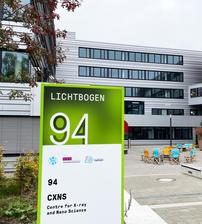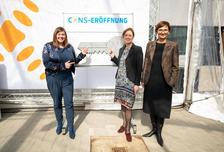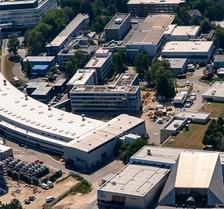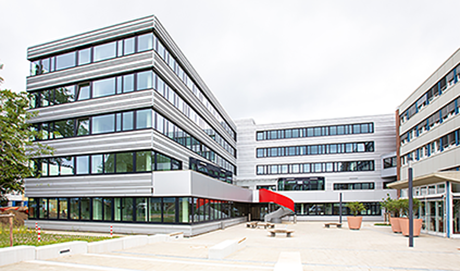The 'new address' of the CXNS building (Bldg. 94 (DESY map / internal interactive map)) at DESY (Photo: DESY, October 2022)
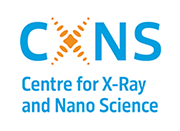
The Centre for X-ray and Nano Science (CXNS), is a cooperation of DESY with the Helmholtz-Zentrum Hereon (Geesthacht) and the Christians-Albrechts-Universität zu Kiel (CAU). Moreover, two further partners joined the CXNS in 2020: the Technische Universität Hamburg (TUHH) as part of the Center for Integrated Multiscale Material Systems (CIMMS) and the Leibniz-Institut für Kristallzüchtung (IKZ Berlin).
The CXNS is hosting the DESY user office as well.
The construction of the new CXNS research building on the DESY campus was finalised in summer 2021. In addition to several research groups from DESY, this building houses the DESY NanoLab as well as the German Engineering Materials Science Centre (GEMS) of Hereon and the Ruprecht Haensel Laboratory (RHL), a long-standing cooperation between the CAU and DESY. The idea of this new centre already put into life is to establish a new state-of-the-art laboratory infrastructure for five strong research partners.
Main research topics of the CXNS scientists are catalytic reactions on nanomaterials, nanoscale phenomena like oxidation and corrosion, material research and search for novel, nanostructured materials, photo-catalytic reactions and research on oxide surfaces and interfaces as well as time- and spatially-resolved investigation of surfaces and nanostructures under in situ and operando conditions.
The CXNS has already proved to provide excellent possibilities for sample preparation, complementary research methods and direct connection to all large-scale DESY light sources.





